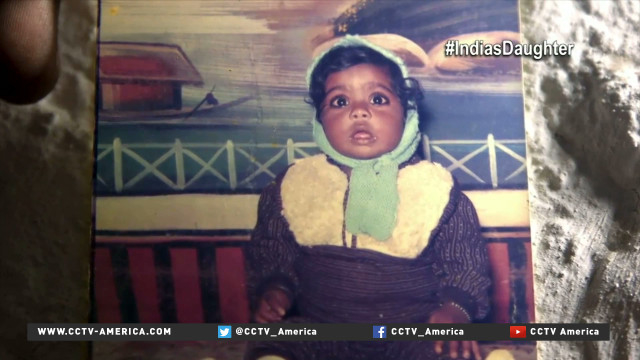Groups of women have been protesting in the Indian capital, Delhi, after a 74 year-old nun was gang-raped over the weekend by six men. The protests come at a time when there is growing concern about sexual violence against women in India. ‘India’s Daughter’, a recently released documentary on one of India’s most notorious rape cases, has also heightened outrage across the nation.
CCTV America’s Shraysi Tandon filed this report from New York.

Highlights:
- ‘India’s Daughter’ recounts the harrowing rape case of 23 year-old Jyoti Singh, a promising Indian medical student.
- News of Singh’s gang rape in 2012 created international uproar and sparked protests in the world’s largest democracy. Millions of Indians took to the streets in the weeks following Singh’s rape, demanding justice.
- The film’s most powerful elements include interviews with convicted killer Mukesh Singh and his defense lawyer ML Sharma, who blamed the victim for the crime.
- Testimonies blaming women for rape have reignited public anger, prompting the Indian government to ban the broadcast of ‘India’s Daughter’ across the country.
- Many politicians and human rights lawyers in India and abroad have defended the film, highlighting its global relevance.
- According to the National Crime Records Bureau, an average of 92 women are raped in India every day.
- Despite rising levels of education, statistics show violence against women has gotten worse. In 2012, there were almost 25,000 rape cases reported in India. In 2013, there were nearly 34,000.
- According to the United Nations, one-third of women is beaten, forced into sex or abused. One-fifth of women will become a victim of rape or attempted rape.
- In order to stem the epidemic of violence against women, India’s Parliament passed new laws in 2013.
- Some of the new legislation targets stalking, disrobing, voyeurism and the use of acid. Healthcare workers must now give victims of sexual violence and acid attacks free and immediate medical care.
- The laws also increase jail terms for rape and include the death penalty if it’s a repeat offense or if the rape leads to a coma. Marital rape, however is still legal unless the couple is separated.
Indian activist Kiran Bedi discusses India’s treatment of women
CCTV America’s Shraysi Tandon interviewed Kiran Bedi, India’s first female police officer, to discuss why the film ‘India’s Daughter’ should be shown in the country. Bedi held the position for almost 40 years. She is now a member of the BJP party and an activist.

The interview took place at Barnard’s Global Symposium on March 13.
 CGTN America
CGTN America

